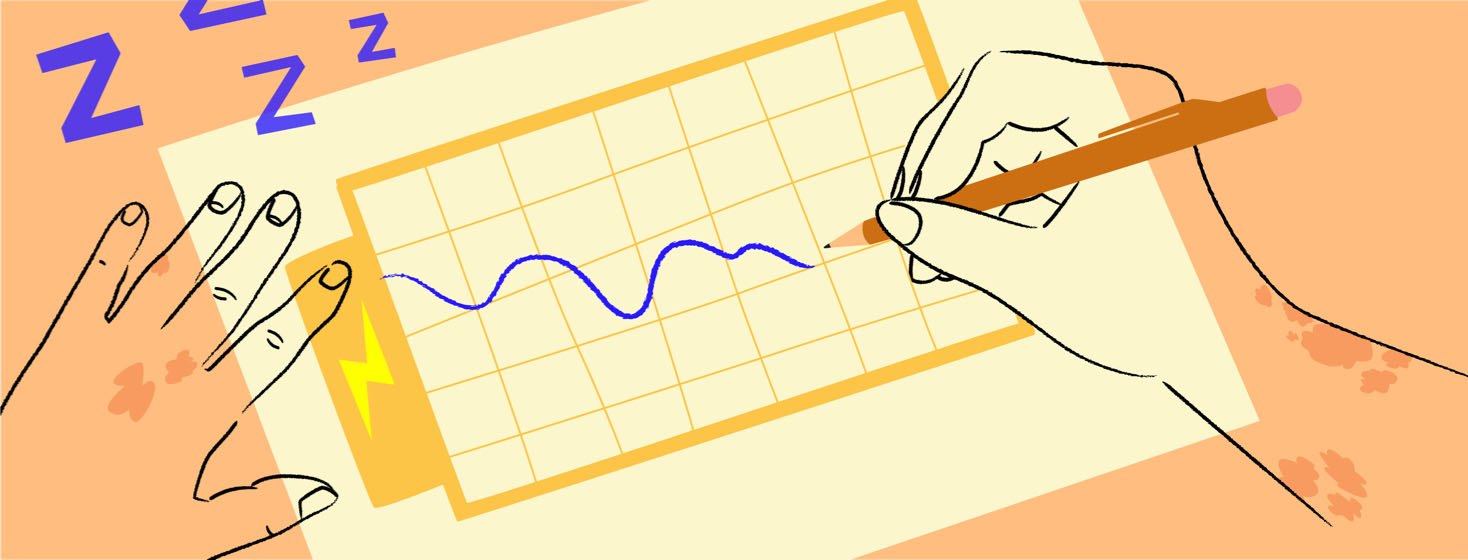Never Ignore Your Arthritis-Related Fatigue
When we think of active psoriatic arthritis, some of the first things that come to mind are painful joints and raging psoriasis. When it comes to tracking the condition, we may only think to note our pain levels and locations.
While those things can be indicators of increased disease activity, they're not the only symptoms that can show how poorly or how well we're doing. Fatigue can also be a great indicator of how active (or inactive) your psoriatic arthritis is. This is something you should pay close attention to!
Start a Forum
What fatigue means to your arthritis
For example, a severe increase in fatigue can often be the first sign of an oncoming flare or that your arthritis isn't being controlled well. Changes in exhaustion levels don't only appear when you're getting worse. Sometimes, a decrease in fatigue is the first indicator that things are about to change!
For me, fatigue is a huge indicator of how well my arthritis is controlled. While I keep better track of my energy levels now, that wasn't always the case: last year, the first sign my biologic was starting to work was a sharp increase in energy and I almost didn't notice at first!
The impact of fatigue on daily life
When I was a few months into my first job, my arthritis flared badly. My coworkers knew when I was about to come into their office, tipped off by the sounded of dragging shoes and the smell of Bengay. It was a struggle to get through the day: my joints ached and refused to cooperate and most of my energy was spent at work or commuting.
At night, I would get home and immediately have to lie down - and I would be down for the rest of the night. My joints would ache. I needed rest from another day hunched over my computer. Many days, I napped before dinner because I was just so wiped out. Even when I had a little energy left over, I still laid in bed because sitting on the couch felt too exhausting.
Featured Forum
View all responsesSharing fatigue with your doctor
At my next rheumatology appointment, I showed my doctor my pain log. I tracked the pain in my joints- everything from where the pain was, how bad it was, and if joints were swelling. While I mentioned my fatigue to the doctor, I didn't have a scale of how bad it was day to day. In hindsight, that could've given her a good idea of just how much I was struggling.
Blood tests showed my inflammation levels were higher than my average, so my rheumatologist decided it was time for a new treatment. Even though I was hopeful, I knew from past experiences that it's essential to give new medications time to work. So when my pain didn't go away immediately, I wasn't too concerned.
Fatigue? What fatigue?
But, much to my surprise, it did start working quickly. There was no noticeable improvement in my pain log, so I didn't notice it immediately. But my fatigue was gradually getting better!
A month into treatment, I stopped napping before bed. But it didn't dawn on me until I realized I was not only skipping my naps, but I was up to sitting on the couch with my roommates to watch a movie. Wow! It doesn't sound like much, but it was a world of difference.
Noticing the small improvements in fatigue helped encourage me to keep trying my treatment. Soon, I started to feel more and more rested in the morning, and I even had energy during the day. Eventually, the pain began to subside, too. My enthesis was all gone after three months!
Track your fatigue!
That rough flare taught me the importance of not only noting my discomfort but also tracking my fatigue. Keeping a close eye on my fatigue levels has helped me identify when I'm doing better or worse, often before my pain changes.
Fatigue, while very impactful on our lives, can sometimes be overshadowed by joint pain. But it's worth keeping track of day to day. You may notice a sharp increase in fatigue a few days before a flare. Or, you may have an experience like mine where an increase in energy is the first sign you're getting better. Our energy levels can cue us into a lot!
Is fatigue one of your most overwhelming symptoms? How do you keep track of your energy levels, and does it seem to correspond with your pain levels?

Join the conversation